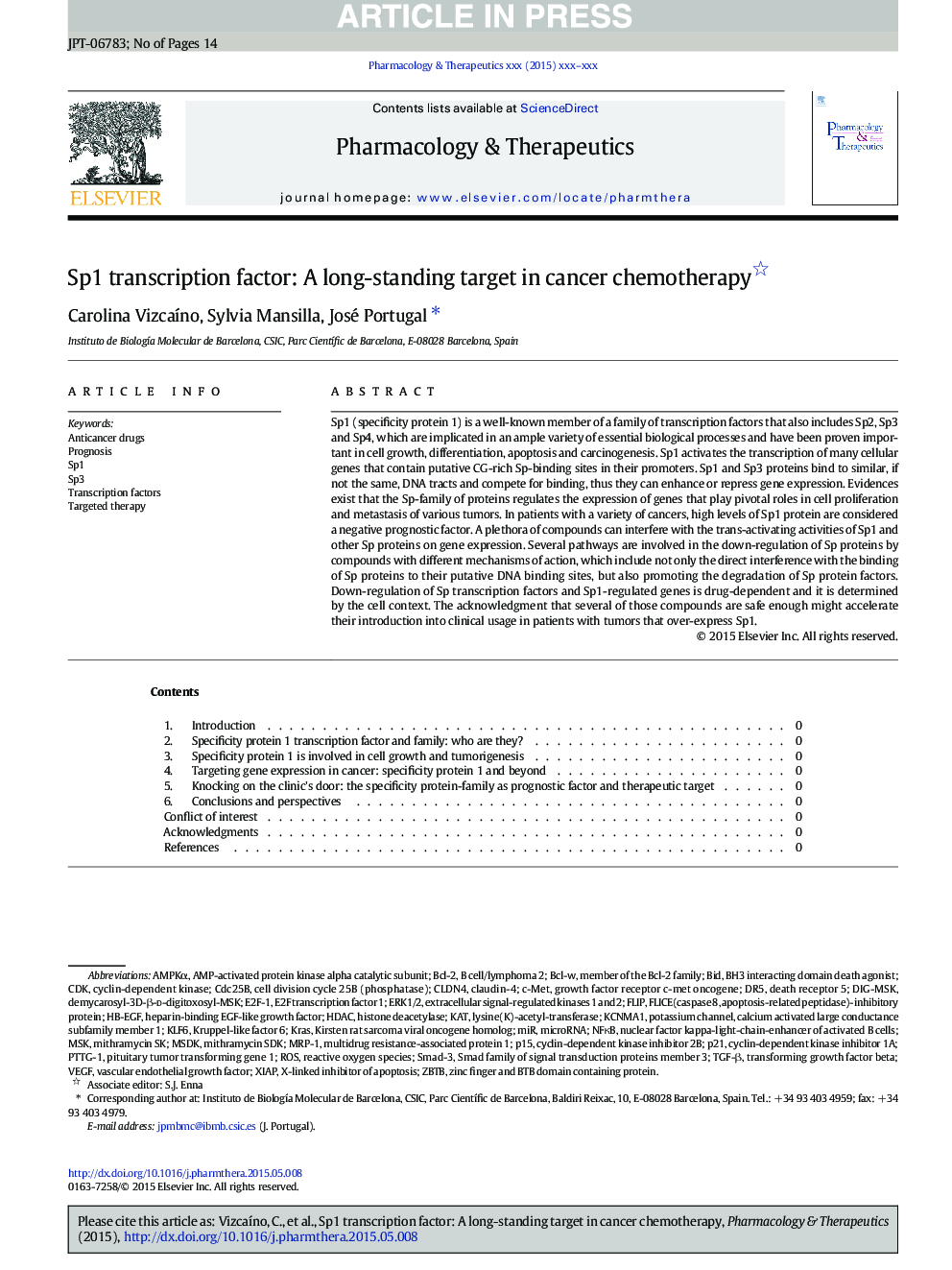| Article ID | Journal | Published Year | Pages | File Type |
|---|---|---|---|---|
| 5844115 | Pharmacology & Therapeutics | 2015 | 14 Pages |
Abstract
Sp1 (specificity protein 1) is a well-known member of a family of transcription factors that also includes Sp2, Sp3 and Sp4, which are implicated in an ample variety of essential biological processes and have been proven important in cell growth, differentiation, apoptosis and carcinogenesis. Sp1 activates the transcription of many cellular genes that contain putative CG-rich Sp-binding sites in their promoters. Sp1 and Sp3 proteins bind to similar, if not the same, DNA tracts and compete for binding, thus they can enhance or repress gene expression. Evidences exist that the Sp-family of proteins regulates the expression of genes that play pivotal roles in cell proliferation and metastasis of various tumors. In patients with a variety of cancers, high levels of Sp1 protein are considered a negative prognostic factor. A plethora of compounds can interfere with the trans-activating activities of Sp1 and other Sp proteins on gene expression. Several pathways are involved in the down-regulation of Sp proteins by compounds with different mechanisms of action, which include not only the direct interference with the binding of Sp proteins to their putative DNA binding sites, but also promoting the degradation of Sp protein factors. Down-regulation of Sp transcription factors and Sp1-regulated genes is drug-dependent and it is determined by the cell context. The acknowledgment that several of those compounds are safe enough might accelerate their introduction into clinical usage in patients with tumors that over-express Sp1.
Keywords
Bcl-2MRP-1FLIPKLF6HB-EGFDR5P21XIAPMSKMIRHDACAMPKαKRASE2F-1CDC25Bbcl-wp15KCNMA1TGF-βCLDN4CDKcyclin-dependent kinase inhibitor 2BBH3 Interacting Domain Death Agonistc-MetERK1/2NFκBROSSp1Sp3Transforming Growth Factor BetaAnticancer drugsTargeted therapyKirsten rat sarcoma viral oncogene homologE2F transcription factor 1Krüppel-like factor 6Transcription factorsVascular endothelial growth factorVascular Endothelial Growth Factor (VEGF)Heparin-binding EGF-like growth factornuclear factor kappa-light-chain-enhancer of activated B cellscyclin-dependent kinase inhibitor 1AX-linked inhibitor of apoptosisMicroRNAhistone deacetylaseMultidrug Resistance-associated Protein 1prognosisBIDKATClaudin-4extracellular signal-regulated kinases 1 and 2cyclin-dependent kinaseReactive oxygen speciesdeath receptor 5
Related Topics
Health Sciences
Pharmacology, Toxicology and Pharmaceutical Science
Pharmacology
Authors
Carolina VizcaÃno, Sylvia Mansilla, José Portugal,
